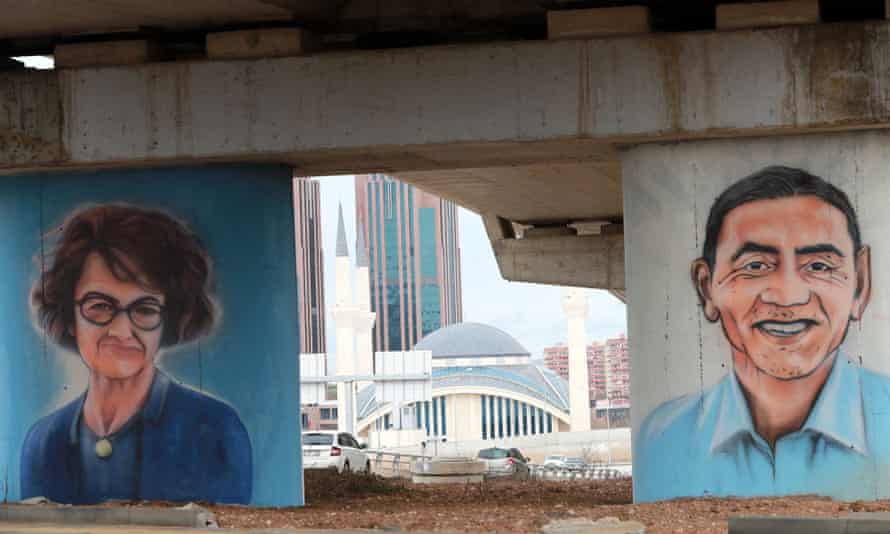Three of the leading Covid vaccine manufacturers have paid out $26bn in dividends and stock buyouts to shareholders in the last year – enough to cover the cost of vaccinating the population of Africa, say campaigners.
The People’s Vaccine Alliance argues that the profits made by the companies are inappropriate when most of the world cannot get the vaccines they need, which are expensive and in short supply. Campaigners want to see the companies waive their patents and help set up factories to make affordable versions of their vaccines around the world.
The alliance estimates that Pfizer has paid out $8.44bn in dividends, Johnson & Johnson $10.5bn in dividends and $3.2bn in share buybacks, and AstraZeneca $3.6bn in dividends.
The demand for vaccines, at a time when the global economy is at a standstill, is responsible for a new wave of billionaires, it says. Uğur Şahin, the founder of BioNTech, which partnered with Pfizer to produce the vaccine he and his wife invented, now has shares worth $5.9bn. Stéphane Bancel, the CEO of Moderna, which produced a vaccine with similar mRNA technology, is worth $5.2bn.

“This is a public health emergency, not a private profit opportunity,” said Anna Marriott, a health policy adviser at Oxfam, which is part of the alliance. “We should not be letting corporations decide who lives and who dies while boosting their profits.
“It is appalling that big pharma is making huge payouts to wealthy shareholders in the face of this global health emergency.”
About 700m doses of Covid vaccines have been given around the world, according to the UN, but the numbers are heavily skewed towards rich countries. “On average in high-income countries, almost one in four people has received a vaccine. In low-income countries, it’s one in more than 500,” said the World Health Organization’s director general, Tedros Adhanonom Ghebreyesus, on 9 April.
The campaign to persuade or force companies to give up their intellectual property rights or patents on the vaccines is growing. Gordon Brown, Ellen Johnson Sirleaf and François Hollande are among 175 former heads of state and Nobel prize winners, including Prof Joseph Stiglitz and Prof Francoise Barré-Sinoussi, who have written to President Joe Biden, calling for the temporary suspension of intellectual property rights to allow vaccine scale-up around the world.
“Let this moment be remembered in history as the time we chose to put the collective right to safety for all ahead of the commercial monopolies of the few,” they said in their letter. Their hope was that the president of the US, where many of the vaccine manufacturers are based, would support the proposal for a waiver at the World Trade Organization.
“These vaccines were funded by public money and are desperately needed worldwide if we are to end this pandemic,” said Heidi Chow of Global Justice Now. “It’s morally bankrupt for rich country leaders to allow a small group of corporations to keep the vaccine technology and knowhow under lock and key while selling their limited doses to the highest bidder.”
AstraZeneca confirmed the payments to shareholders, who it said took the risks that allowed the company to invest in the vaccine. A spokesperson said it had been responsible for 37m of the 38m doses of vaccine distributed to 100 countries through the Covax collaboration since Ghana took the first delivery on 24 February.
Moderna said it was participating in discussions with multilateral organisations like Covax, and had made “a public commitment to differential pricing frameworks”. With reference to Gavi, the vaccine alliance supplying inoculations in low-income countries, it said: “We have stated that Gavi-eligible countries will get Moderna’s lowest prices and committed to an audit of this as we move forwards.”
Pfizer and Johnson & Johnson were also contacted for comment.
This content first appear on the guardian
